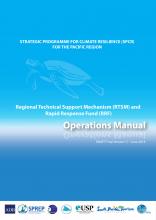Weed eradication on Raoul Island, Kermadec Islands, New Zealand: progress and prognosis

BRB
Available Online
During the 45 years that the Raoul Island weed eradication programme has been underway, eleven species have been eradicated. To complete the restoration of Raoul Islands unique ecosystems supporting signi?cant seabird biodiversity and endemic biota, nine further transformer weeds must be eradicated. In this review of progress to date, we examine the feasibility of eradication of these transformers and identify that four species are on target for eradication: African olive (Olea europaea subsp. cuspidata), yellow guava (Psidium guajava), castor oil plant (Ricinus communis) and grape (Vitis vinifera). However, for four more species more sta? resources are required to achieve eradication as currently infestations are establishing faster than they are being eliminated: purple guava (Psidium cattleianum), black passionfruit (Passi?ora edulis), Brazilian buttercup (Senna septemtrionalis) and Mysore thorn (Caesalpinia decapetala). The ninth species, Madeira vine (Anredera cordifolia), is being contained but presents logistical di?culties for e?ective control herbicide resistant tubers and cli? locations requiring rope access in unstable terrain. Increasing the resources for this programme now to enable eradication of these transformer weeds will reduce the total long-term cost of the programme. Eradication of rats, the 2006 eruption, recent greater cyclone frequency, increased tourism requiring biosecurity management, and sta?ng reductions have all impacted progress on weed eradication. Myrtle rust (Austropuccinia psidii), con?rmed in March 2017 as the latest invasive species on Raoul Island, is establishing on Kermadec pohutukawa (Metrosideros kermadecensis), the dominant canopy species. The impact of this species on the weed eradication programme is unknown at this point.

